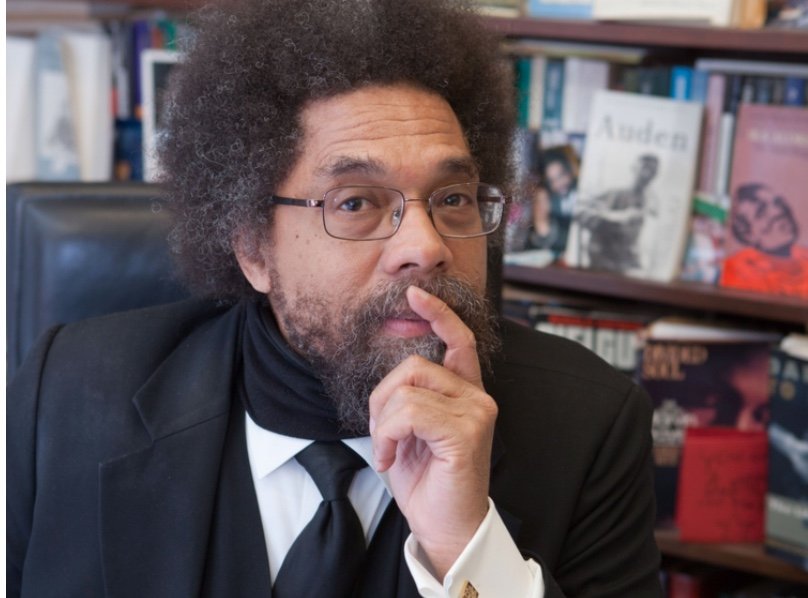The Quest for Truth in Education.
More than Cheap Schooling
**Dr. Kabban:**
"Now that we have voices rising up—like MC Abdul, and of course Rashid Khalidi, who's the Edward Said Chair at Columbia—we also recognize that facts don’t speak for themselves. We have these voices, but facts require a critically conscious people to make meaning of them, to elevate them. And this kind of consciousness has to imagine a beginning and an end. In the case of Palestine, it’s about imagining a homeland for those exiled in 1948, what’s called the Nakba. So my last question for you, Dr. West: how can teachers take the concepts of *Paideia* and *Parrhesia* and apply them to the case of Palestine in their classrooms and with their students?"
**Dr. West:**
"Well, first, every teacher, I think, ought to have a profound care and concern for the quest for truth, and for how their students can be equipped to engage in that fallible quest for truth. The condition of truth is to allow suffering to speak. Are you only going to be concerned about Jewish suffering and ignore Palestinian suffering in the stories you tell? That’s like saying, ‘I’m primarily concerned about white suffering and don’t want to say a mumbling word about Black suffering.’ How you going to understand the truth of America if you only talk about white suffering? Have white brothers and sisters suffered? Of course they’ve suffered. But can you tell the story of America just talking about white suffering? No, you can’t. You need the whole story—the foundations, in terms of slavery and Jim Crow, the culture and so forth.
"It’s the same when we talk about Palestinian suffering vis-à-vis Jewish suffering. To fall in love with Palestinians doesn’t mean you stop loving Jewish brothers and sisters. It means that their suffering has the same value as Jewish suffering. And when you look at the systems and the structures, you see asymmetric relations of power. You see somebody on top terrorizing and traumatizing, generating cultures of hatred and demonizing, and you see somebody on the bottom. And that’s what teachers ought to be about: truth.
"This isn’t about being ‘sensitive’ to our new Middle Eastern immigrants because we believe in diversity and equity and all this other... please, get off the crack pipe. We’re talking about *Paideia*, we’re talking about *Parrhesia*. Do we have the courage to engage in a painful quest for truth, but to do so in a self-critical mode? Because, of course, all of us can have our shortcomings. All of us have our blind spots.
"The good news, as you know, is that there’s a whole new wave of our young Jewish brothers and sisters rejecting the lies that their parents and grandparents told them. From ‘If Not Now’ and across the board, they’re waking up. 'Oh, there was a land with no people.' We heard that with the cowboys in America too, didn’t we? Yes, there were people on that land; they got pushed out at gunpoint. 'Oh, we didn’t hear that at the Jewish camp over the summer.' No, you didn’t. They lied to you, brother. Joshua, they lied to you. Are you concerned about the truth? 'Yes, I am, Brother West.' Then read Rashid, get a sense of what the realities are.
"But you’re right—facts themselves never speak for themselves. Frameworks are important, and in the end, you have to have people on the move. People who are willing to fight, to raise their voices, to organize, mobilize, and so on, coming up with strategies and tactics. That’s why I spend as much time as I do with the BDS movement. And people say, 'Oh, Brother West, this is such a controversial thing,' and the courts and Congress say I’m anti-Semitic. No, we’re doing the same thing we did in South Africa. They told us the same thing in the ’80s—it's a non-violent form of acknowledging the plight and predicament of oppressed peoples that allows people to boycott, to have sanctions, and to engage in various divestment movements.
**Dr. Kabban:**
"And, Dr. West, back in the ’80s, during the anti-apartheid movement in the U.S., critics of South Africa rarely mentioned their biggest ally: the State of Israel. And so now we’re in this anti-racist era, and I think the jury is still out on whether Israel will be included in that or not. That’s what we’re building—a movement grounded in *Paideia* and *Parrhesia*. But look, the State of California has erased Palestinians from the ethnic studies curriculum, and Critical Race Theory is being written out of many districts across the country. This is a continuous struggle for freedom and truth."


